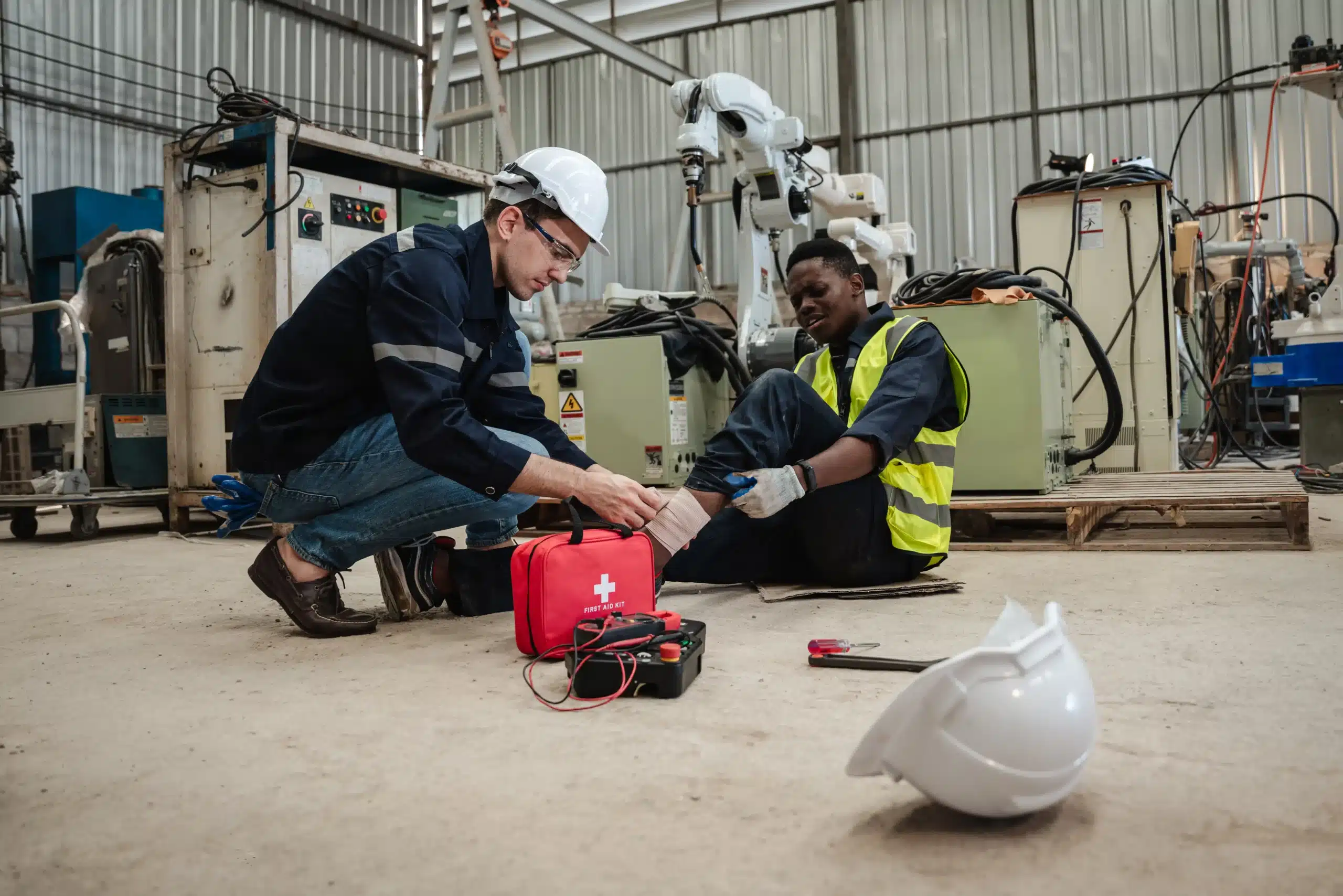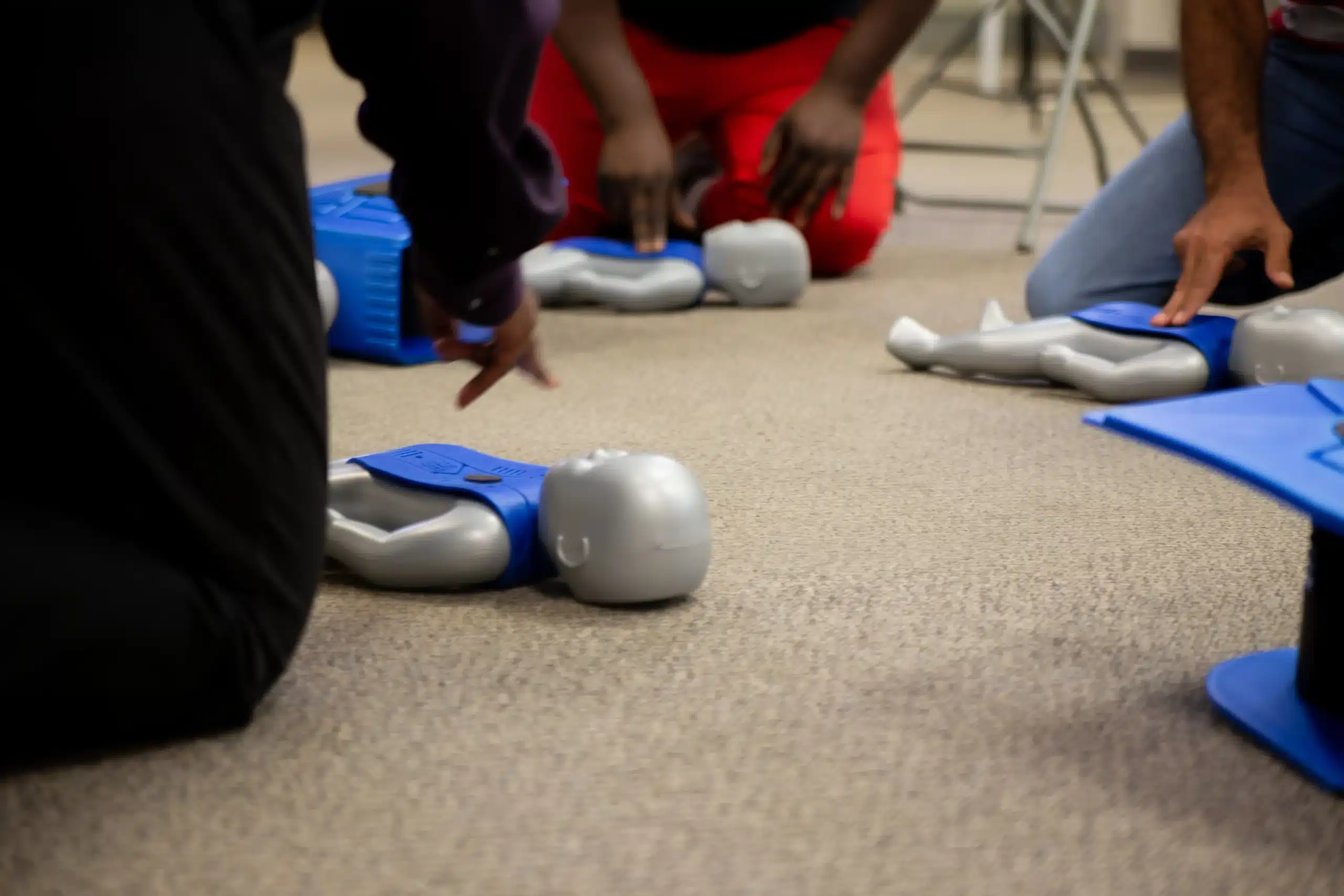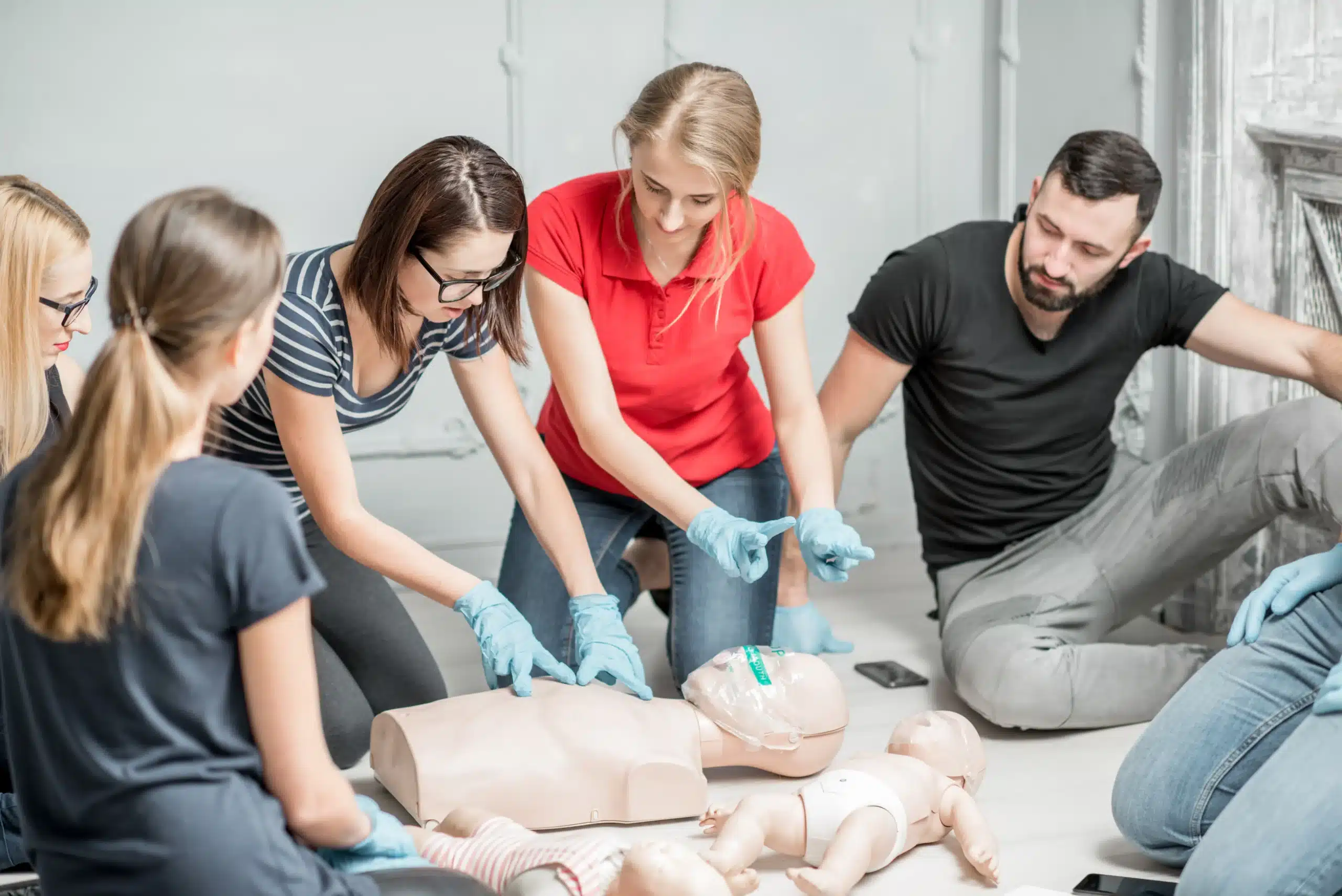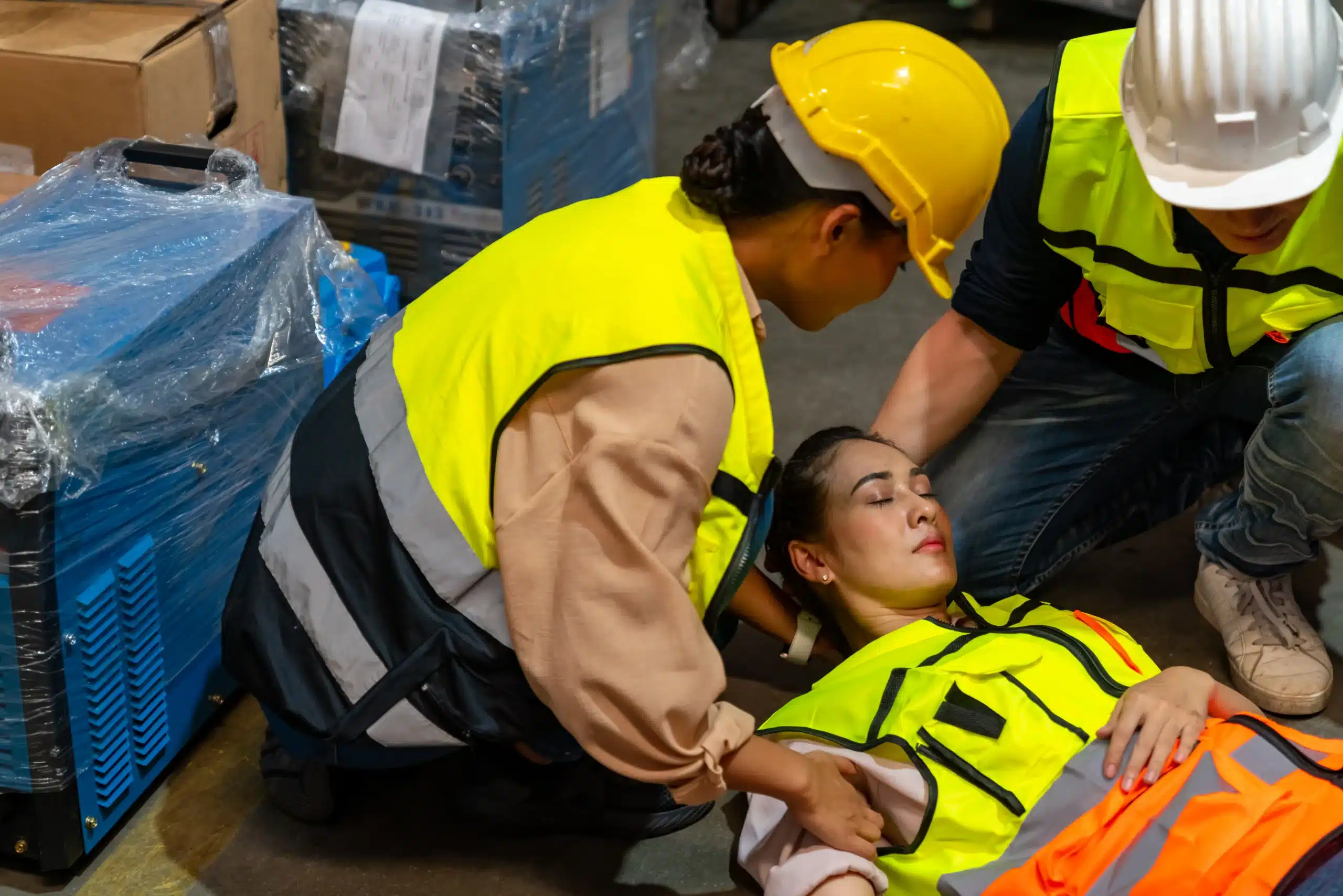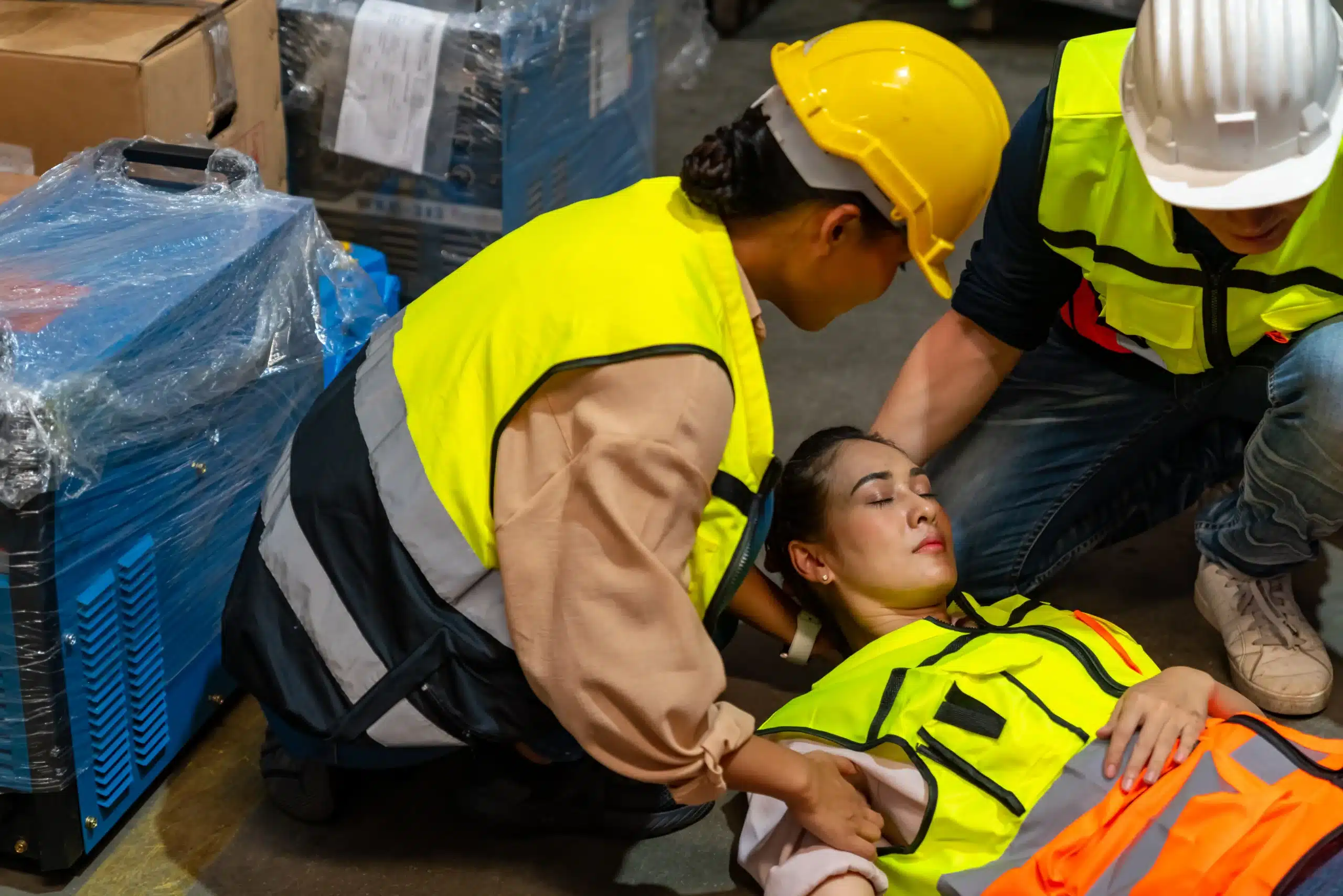In the dynamic world of dental practice, patient safety is paramount. While your focus remains on oral health, being prepared for unexpected medical emergencies is crucial. Advanced Cardiac Life Support (ACLS) certification equips dentists with the skills to manage life-threatening situations effectively. This article delves into the significance of ACLS for dentists, highlighting the essential skills gained through ACLS courses for dentists in Berkeley and how this training enhances patient care. We’ll explore the various ACLS course options available in Berkeley, including those offered by Berkeley CPR Classes, and provide guidance on selecting the right course to fit your busy schedule and professional goals. From understanding the core components of ACLS to navigating the certification process, this guide offers valuable insights for dentists seeking to elevate their emergency preparedness.
Key Takeaways for Dentists
- Preparedness for Dental Emergencies: Medical emergencies, though uncommon in dental offices, can still happen. ACLS training equips you to confidently manage these situations, providing crucial care while waiting for EMS to arrive, potentially improving patient outcomes.
- Selecting Your ACLS Course: Choose an AHA-accredited course for a high-quality, standardized curriculum. Consider your learning style and schedule when deciding between in-person, online, or hybrid formats. Berkeley CPR Classes offers flexible options to accommodate busy professionals.
- Optimizing Your ACLS Learning: In-person training provides immediate instructor feedback and hands-on simulations. This immersive experience strengthens essential skills like CPR and airway management, boosting your confidence and preparedness in real-world dental emergencies.
What is ACLS Certification & Why Do Dentists Need It?
ACLS (Advanced Cardiac Life Support) certification is a vital credential for healthcare providers—including dentists—to effectively manage life-threatening cardiovascular emergencies. This specialized training goes beyond basic CPR, equipping dentists with the advanced knowledge and skills to confidently handle serious cardiac events. Think of it as a comprehensive toolkit for responding to emergencies like cardiac arrest, stroke, and respiratory failure. ACLS certification empowers dentists to provide immediate, effective care, potentially saving lives in critical situations. In a dental setting, where patients may experience anxiety, have underlying health conditions, or undergo procedures involving anesthesia, having a dentist trained in ACLS adds an extra layer of safety and preparedness.
Key ACLS Skills
ACLS training covers a range of essential skills, from airway management and rhythm recognition to pharmacology and effective teamwork. You’ll learn how to quickly assess a patient’s condition, administer medications, and use equipment like defibrillators. Hands-on practice is a crucial part of ACLS training, allowing participants to develop the muscle memory and confidence needed to respond effectively under pressure. This practical experience ensures that dentists can apply their knowledge in real-world scenarios, providing the best possible care during emergencies. The emphasis on teamwork also prepares dentists to collaborate seamlessly with other medical professionals, creating a coordinated and efficient response.
Common Dental Emergencies
While dental visits are typically routine, emergencies can occur. Cardiac arrest, severe allergic reactions (anaphylaxis), and syncope (fainting) are just a few examples of situations that might require immediate intervention in a dental office. These events can be triggered by various factors, including anxiety, pre-existing medical conditions, or complications during procedures. ACLS training prepares dentists to handle these situations swiftly and effectively, minimizing the risk of serious complications. By recognizing the signs and symptoms of these emergencies, dentists can initiate appropriate treatment protocols and stabilize patients until further medical assistance arrives. For real-world examples of how ACLS training has made a difference, you can explore these testimonials.
ACLS for Dentists: Clearing Up Confusion
There can be some confusion about whether ACLS certification is truly necessary for dentists. Some might believe that their general medical training is sufficient or that such emergencies are rare in a dental setting. However, the reality is that any healthcare professional, including dentists, can encounter a life-threatening situation. Obtaining ACLS certification isn’t just about fulfilling a requirement; it’s about enhancing patient safety and ensuring the highest standard of care. It demonstrates a commitment to preparedness and provides dentists with the confidence to handle emergencies effectively, potentially making a life-saving difference.
Best ACLS Courses for Berkeley Dentists
Finding the right ACLS course can feel overwhelming, but several reputable providers offer high-quality training. Here are a few options to consider:
Berkeley CPR Classes
For dentists in the Berkeley area, Berkeley CPR Classes offers a convenient and comprehensive option. They provide AHA-certified ACLS courses right here in Berkeley at 1700 Solano Ave., Suite F. Their flexible schedule, with classes running daily from 8 am to 10 pm, makes it easier to fit training into your busy schedule. They also offer discount group classes, a great option for dental offices looking to certify their entire staff. Berkeley CPR Classes serves Alameda, Oakland, and Berkeley. For those needing to brush up on their skills, they also offer RQI classes. And with their low price guarantee, you can be confident you’re getting a good value.
American Heart Association
The American Heart Association sets the standards for ACLS training. Finding a training center that uses their updated curriculum is essential for receiving high-quality, recognized certification. Many organizations, including Berkeley CPR Classes, offer AHA-compliant ACLS courses. Look for training centers with a solid reputation and experienced instructors.
Red Cross
The American Red Cross offers a range of health and safety courses, including ACLS. They provide comprehensive training that meets industry standards. Check their website for course availability and locations near you. Consider factors like course schedule and location when making your decision.
SureFire CPR
SureFire CPR specializes in ACLS training for dental professionals. They understand the specific needs of dentists and offer courses designed to address the types of emergencies most likely to occur in a dental setting. This focus on dental-specific scenarios can be particularly valuable.
ACLSNow
ACLSNow offers various ACLS certification options, including online and in-person formats. Their program focuses on practical skills, empowering healthcare providers to confidently respond to emergencies. Reading through their testimonials can offer insights from other professionals.
ACLS Course Formats & Duration
When choosing an ACLS course, the format and duration are key factors to consider. Each format offers distinct advantages, catering to different learning styles and schedules. Let’s explore the most common options: in-person, online, and hybrid courses.
Benefits of In-Person Training
In-person ACLS training provides a structured learning environment with face-to-face interaction with instructors and peers. This format offers hands-on practice with essential skills like CPR, defibrillation, and advanced airway management, often using simulation equipment. The immediate feedback you receive from instructors is invaluable for mastering these critical skills. This real-time interaction allows for personalized guidance and clarification, ensuring a thorough understanding of the material. The camaraderie and shared learning experience in a classroom setting can also be highly motivating. In-person training often utilizes advanced simulation technology, creating a dynamic and interactive learning environment.
Online & Hybrid Courses
Online ACLS courses offer flexibility and convenience, allowing you to complete the training at your own pace. This format is particularly beneficial for busy professionals who need to fit training around their existing schedules. Online courses often incorporate interactive modules, videos, and self-assessments to reinforce learning. Online learning offers advantages like self-paced study, cost savings, and adaptability to different learning styles. Hybrid courses combine the benefits of online learning with in-person skills sessions. This blended approach allows you to cover the theoretical material online and then practice your skills in a hands-on environment with expert guidance.
Time Commitment & Scheduling
The time commitment for ACLS certification varies depending on the course format. In-person courses typically require a dedicated block of time, often over a weekend or a couple of days. Online courses, on the other hand, offer more flexibility, allowing you to study in shorter bursts whenever your schedule allows. Hybrid courses fall somewhere in between, with online modules supplemented by shorter in-person skills sessions. Consider your availability and preferred learning style when deciding which format best suits your needs. If you’re looking for the quickest path to certification, an accelerated in-person course might be the best option. If you value flexibility and self-paced learning, an online or hybrid course could be a better fit. Berkeley CPR Classes offers a variety of course formats and schedules to accommodate different preferences and time constraints.
ACLS Course Costs & Value for Dentists
As a dentist, staying up-to-date on life-saving techniques like Advanced Cardiac Life Support (ACLS) is crucial. But how much does ACLS certification cost, and what’s the real value for your dental practice? Let’s break down the expenses and explore the long-term benefits.
Average ACLS Certification Prices
The average cost of ACLS certification hovers around $290, though prices can vary based on the training provider and your location. Berkeley CPR Classes offers competitive pricing and a low-price guarantee, making it a smart choice for dentists in the Berkeley area. Consider this cost an investment in professional development and, most importantly, patient safety.
Group Discounts & Saving Money
If you want to certify your entire dental team, explore group discounts. Many ACLS providers offer significant savings for group registrations. For example, a larger upfront deposit might be required, but the per-person cost often decreases substantially, making it a budget-friendly option for practices. This is a great way to enhance your team’s emergency preparedness without overspending.
Long-Term Benefits & ROI
While there’s an initial cost for ACLS training, the long-term benefits far outweigh the expense. ACLS equips you with the skills to manage cardiac emergencies effectively. Beyond technical skills like CPR, defibrillation, and medication administration, ACLS training instills confidence and improves patient outcomes. This translates to a significant return on investment (ROI) by preparing you and your team to respond calmly and efficiently in critical situations, building trust with your patients and ensuring a safer environment for everyone.
What Happens in an ACLS Course for Dentists?
An ACLS course for dentists covers the essential skills needed to manage cardiopulmonary emergencies. While the core ACLS principles remain consistent, the course tailors specific elements to a dental setting. This ensures dentists can effectively apply their training in real-world scenarios within their practices.
Dental-Specific Curriculum
ACLS training for dentists goes beyond basic life support. It equips you with the knowledge and skills to recognize and handle cardiac emergencies specific to a dental office. You’ll learn how to identify potential triggers for emergencies, such as a patient’s medical history or anxiety related to dental procedures. The curriculum also covers how to manage complications arising from local anesthesia or sedation. A key part of the training focuses on airway management techniques relevant to dental settings, including the use of specialized equipment like supraglottic airways. You’ll also learn about the drugs commonly used in dental practice and their potential interactions with ACLS medications.
Hands-on Practice & Simulations
ACLS courses for dentists emphasize hands-on training to build confidence and proficiency. Simulations play a crucial role, recreating realistic emergency scenarios that you might encounter in your practice. These simulations often involve working with a team, allowing you to practice coordinating care and communication in a high-stress environment. Many courses use advanced high-fidelity patient simulators, which mimic real-life physiological responses, adding another layer of realism to the training. This practical experience helps bridge the gap between theory and application, ensuring you’re prepared to act swiftly and effectively in a real emergency.
High-Fidelity Simulator Training
High-fidelity simulators are a cornerstone of modern ACLS training for dentists. These sophisticated mannequins respond to interventions like real patients, allowing you to practice skills such as intubation, defibrillation, and IV access in a safe and controlled environment. Working with these simulators provides immediate feedback on your performance, helping you refine your technique and decision-making skills. The realistic nature of the simulations also helps reduce anxiety and build confidence, preparing you to manage real emergencies with composure and precision. Many ACLS courses offer one-on-one instruction with experienced instructors, allowing for personalized feedback and guidance during these simulations.
Prepare for Your ACLS Course
Getting ready for your ACLS course involves more than just signing up. Think of it as preparing for any important exam or training—a little prep work goes a long way. Here’s how to get ready for a smooth and successful ACLS learning experience:
Pre-Course Study Materials
Before you even set foot in the classroom (or log in for an online course), brush up on your Basic Life Support (BLS) skills. A solid understanding of BLS provides the foundation upon which ACLS builds. Reviewing core BLS concepts like chest compressions and rescue breaths will make absorbing the more advanced ACLS material much easier. Think of it as building a house—you need a strong foundation before you can add the walls and roof. Many ACLS providers offer BLS courses as well, so you can conveniently complete both certifications.
Essential Equipment & Resources
One of the advantages of in-person ACLS classes is the access to specialized equipment. You’ll have the opportunity to practice on mannequins, intubation equipment, and other tools used in real-life emergencies. This hands-on experience is invaluable for developing muscle memory and confidence. Many courses also incorporate advanced simulation technology, allowing you to apply your skills in realistic scenarios. This immersive training helps bridge the gap between theory and practice, preparing you to handle actual emergencies effectively. Check with your chosen course provider to see what equipment and resources they offer.
Mental Preparation
While mastering the technical skills is essential, mental preparedness is equally important. Remember, ACLS certification isn’t just a checkbox on your professional to-do list—it represents the ability to potentially save a life. Reflect on the significance of this responsibility and approach the course with a serious and focused mindset. Reading testimonials from other healthcare providers can offer powerful insights into real-world applications of ACLS. Understanding the potential impact of your training can help you stay motivated and engaged throughout the course. This mental preparation will not only enhance your learning but also build the confidence you need to act decisively in critical situations.
Maintain Your ACLS Certification
Once you’ve earned your ACLS certification, staying current is key. Medical best practices are always evolving, and maintaining your skills ensures you’re prepared for any emergency. This section covers everything you need to know about ACLS renewal requirements, continuing education, and staying up-to-date with the latest guidelines.
Renewal Requirements
ACLS certification isn’t permanent. You’ll need recertification to stay updated with the latest best practices. Renewal is typically required every two years, though this can vary. Check with your certifying organization, such as the American Heart Association, for specific requirements. Remember, maintaining your certification isn’t just a formality; it’s a commitment to providing the highest quality patient care. It’s beneficial for a range of healthcare roles.
Continuing Education
Continuing education is crucial for maintaining your ACLS skills and knowledge. Look for opportunities to expand your understanding of cardiac emergencies and advanced life support techniques. ACLS recertification courses often cover updates to guidelines and best practices, ensuring you’re prepared for any situation. These courses also offer a chance to practice your skills and receive feedback from experienced instructors. Continuing education helps you maintain your certification and strengthens your ability to respond effectively to cardiac emergencies.
Staying Current with Guidelines
Staying informed about the latest ACLS guidelines is essential for providing effective patient care. Regularly review updates from reputable organizations like the American Heart Association. These updates often include changes to treatment protocols, medication dosages, and best practices for managing cardiac emergencies. Thorough training in identifying and managing reversible causes is also crucial. By staying current with the latest guidelines, you can ensure you’re providing the most effective and up-to-date care. Consider subscribing to newsletters or following relevant organizations on social media to stay informed about new developments and educational opportunities.
Use ACLS Skills in Your Dental Practice
As a dentist, you’re dedicated to patient well-being, and that includes being ready for anything. Having ACLS certification empowers you to handle emergencies effectively, ensuring a safe environment for both patients and staff. Let’s explore how these skills translate to real-world scenarios in your dental practice.
Emergency Response Protocols
Think of ACLS as your practice’s emergency playbook. It provides a clear roadmap for recognizing and responding to cardiac emergencies. From basic life support like CPR to more advanced interventions such as defibrillation and medication administration, ACLS equips you with the tools to act decisively. This standardized approach ensures consistent, high-quality care during critical moments. Having established protocols in place streamlines communication and coordination among your team, minimizing confusion and maximizing efficiency. Resources like Cardiox Care emphasize the importance of ACLS for dentists in providing optimal patient care during emergencies.
Team Training & Preparedness
ACLS training isn’t just for dentists; it’s a team effort. When your entire staff is trained, everyone understands their roles and responsibilities during an emergency. This shared knowledge creates a cohesive response, reducing errors and improving patient outcomes. Consider in-office ACLS training tailored to your dental practice. Hands-on practice with realistic simulations prepares your team for the real deal, building confidence and competence. This type of training fosters a culture of preparedness within your practice.
Recommended Office Setup
A well-equipped office is crucial for effective emergency response. Beyond having the necessary equipment like a defibrillator and emergency medications, consider how your office layout can support a smooth response. Ensure easy access to emergency supplies and create a designated area for managing emergencies. Comprehensive ACLS courses often offer recommendations for office setup and airway kit preparation, helping you optimize your space for safety. Courses like these often cover common simulator procedures for sedation and full staff training in airway management, ensuring your team is well-prepared for various dental emergencies. By proactively addressing these logistical details, you create an environment where your team can perform at their best under pressure.
Choose the Right ACLS Course
Finding the right ACLS course can feel overwhelming, but focusing on a few key factors simplifies the decision. This section breaks down what to consider when choosing an ACLS course in Berkeley, especially for dentists.
Factors to Consider
When selecting an ACLS course, prioritize a reputable provider. Look for courses accredited by the American Heart Association (AHA) to ensure high-quality training. Choosing a recognized and respected program ensures your certification holds weight and reflects current best practices. Also, consider your learning style and schedule. Healthcare professionals should choose an ACLS course based on their preferred learning format (online, in-person, or hybrid) and how it fits their busy schedules. Berkeley CPR Classes offers various course times and formats to accommodate different needs.
Align Course Options with Your Goals
It’s essential to align course content with your professional goals. ACLS training is invaluable for dentists, equipping them to handle cardiac emergencies effectively. This specialized training goes beyond basic CPR, covering advanced life support techniques crucial in dental settings. For example, ACLS equips dentists with the skills to manage cardiac emergencies, including CPR, defibrillation, and medication delivery. Furthermore, some courses include practical training with simulations of common dental procedures using high-fidelity simulators. This hands-on experience is invaluable for applying your knowledge in realistic scenarios. If this is important to you, confirm the course includes these practical components. Our ACLS courses are tailored to meet the specific needs of healthcare providers in Berkeley.
Evaluate Course Reviews
Before committing to a course, read reviews from past participants. Positive feedback offers valuable insights into the course’s effectiveness and the instructor’s teaching style. Look for comments that highlight clear and concise information, practical application of skills, and a positive learning environment. Hearing from others who have completed the course can give you a better sense of what to expect and help you make an informed decision. You can often find reviews on the course provider’s website or independent review platforms. For instance, Berkeley CPR Classes features testimonials from previous students. Consider checking our low price guarantee as well.
Key Takeaways for Dentists
ACLS & Dental Emergencies
As a dentist, you’re dedicated to your patients’ well-being, and that includes being prepared for any situation—even medical emergencies. While rare, emergencies like cardiac arrest, respiratory distress, and allergic reactions can happen in a dental setting. ACLS training equips you with the skills to manage these critical situations. Think of it as an extra layer of preparedness, allowing you to confidently provide immediate care while waiting for EMS to arrive. This quick action can significantly impact a patient’s outcome. Learning ACLS protocols strengthens your ability to handle emergencies effectively, ensuring the best possible care for your patients.
Choosing the Right Course
Finding the right ACLS course involves a few key considerations. First, ensure the course is accredited by the American Heart Association (AHA). This accreditation guarantees a high-quality, standardized curriculum. Next, think about your learning style and how it fits with the course format. Do you thrive in a hands-on, in-person environment, or would you prefer the flexibility of an online or hybrid course? Finally, consider your schedule and choose a course that aligns with your availability. Berkeley CPR Classes offers a variety of course formats and schedules to meet the needs of busy professionals.
Maximizing Your ACLS Training
To truly maximize your ACLS training, consider the benefits of in-person learning. In-person ACLS courses offer immediate feedback from instructors, allowing you to refine your skills in real-time. The interactive nature of these courses, often involving hands-on simulations and practice scenarios, creates a dynamic learning environment. This immersive experience helps solidify your understanding of the material and builds your confidence in applying these skills in a real emergency. You’ll have the opportunity to practice essential skills like CPR, defibrillation, and airway management, using simulation equipment, which translates to better preparedness in your dental practice.
Related Articles
- Advanced Cardiac Life Support (ACLS) in Berkeley – Berkeley CPR Classes
- ACLS Renewal Berkeley: Your Complete Guide – Berkeley CPR Classes
- Find ACLS Renewal Courses Near Me – Berkeley CPR Classes
- Online ACLS Certification in Berkeley: Your Full Guide – Berkeley CPR Classes
- ACLS HeartCode Berkeley: Your Complete Guide – Berkeley CPR Classes
Frequently Asked Questions
Is ACLS certification really necessary for dentists?
While medical emergencies in dental settings are uncommon, they can occur. ACLS certification equips dentists with the advanced skills to manage life-threatening situations, ensuring patient safety and the highest standard of care. It’s about being prepared and having the confidence to respond effectively in a critical moment.
What are the key skills covered in an ACLS course?
ACLS training goes beyond basic CPR, covering essential skills such as airway management, rhythm recognition, pharmacology, and effective teamwork. You’ll learn how to quickly assess a patient, administer medications, and use equipment like defibrillators, with a strong emphasis on practical application and hands-on practice.
How much does ACLS certification cost, and how long is it valid?
ACLS certification typically costs around $290, although prices can vary. Certification is usually valid for two years. Many providers, including Berkeley CPR Classes, offer group discounts, making it more affordable to train your entire dental team. Remember to factor in the long-term benefits of enhanced patient safety and peace of mind.
What are the different ACLS course formats available?
ACLS courses are offered in various formats, including in-person, online, and hybrid options. In-person courses provide hands-on training and direct interaction with instructors. Online courses offer flexibility and self-paced learning. Hybrid courses combine online learning with in-person skills sessions. Choose the format that best suits your learning style and schedule.
How can I prepare for my ACLS course?
Before your ACLS course, refresh your Basic Life Support (BLS) skills, as ACLS builds upon these foundational concepts. Familiarize yourself with the course materials and any pre-reading assignments. Mentally prepare yourself for the intensity of the training and the importance of the skills you’ll be learning. Consider reading testimonials from other healthcare providers to understand the real-world impact of ACLS.


